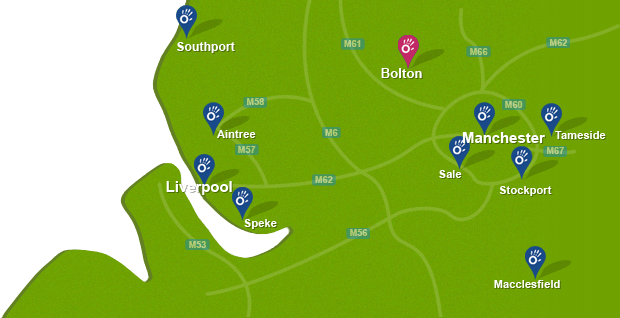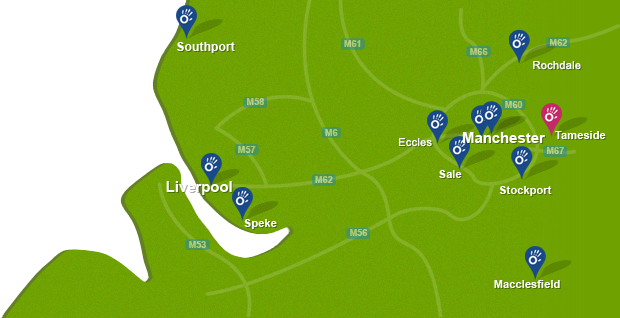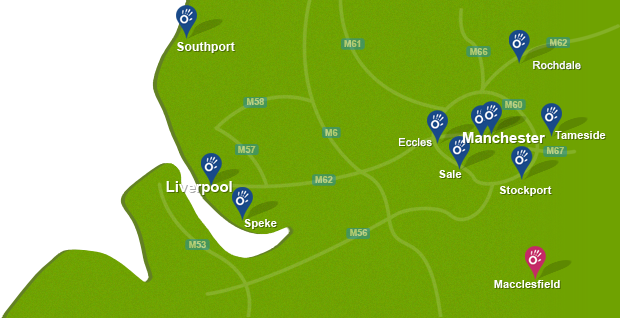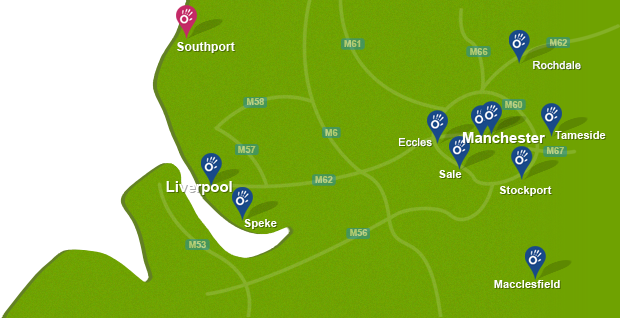What is a stress fracture?
A hip stress fracture is a hairline crack usually in the femoral neck, the short section of bone that connects the head of the femur to the main shaft of the bone. The femoral neck is a thinner part of the femur and is therefore more susceptible to stress fractures from overuse activity.
What causes a stress fracture?
The main cause of a stress fracture is repetitive stress placed on the bone which overwhelms the bones ability to adapt. This usually happens when someone suddenly begins a new, strenuous, repetitive activity such as running. Stress fractures can occur in other areas of the hip and pelvis, but the femoral neck is the most common.
 Above: Our physiotherpaist undertakig a thorough lower limb assessment.
Above: Our physiotherpaist undertakig a thorough lower limb assessment.What are the symptoms/effects of a stress fracture?
Symptoms of a stress fracture may include:
- A dull ache deep in the general area of the thigh
- Pain when moving the hip or leg
- Pain may be referred into the knee
Diagnosis of a stress fracture
A doctor or physiotherapist will take a detailed medical history including questions about your activities and exercise and then physically examine the painful hip to confirm a diagnosis. Your doctor or physiotherapist will probably suggest taking an X-ray, bone scan or magnetic resonance imaging (MRI) of your hip to give a more accurate diagnosis.
Treatment for a stress fracture
Conventional treatment will involve resting from activity that makes the pain worse and modifying activity levels to allow the fracture to heal. If the pain occurs while walking, then crutches should be used.
Surgery may also be required if your doctor is concerned that the fracture may displace (move out of place) to stabilise the bone.
Physiotherapy for a stress fracture
Physiotherapy treatment will help speed up the healing process by advising you on how to structure exercise, mobilise safely and effectively and strengthen your muscles without aggravating pain.
Physiotherapy treatment at Manchester Physio will ensure that you make a full recovery and prevent the injury from re-occurring.
An initial assessment with one of our experienced physiotherapists and a detailed account of your activity levels will identify your main problems in order to develop an effective treatment plan.
Your rehabilitation program at Manchester Physio may include:
- Advice on how to modify activity when to progress exercises safely
- Ultrasound to facilitate healing
- Soft tissue massage to lengthen tight muscles and reduce pain
- Gait training � helping you to walk better and with more independence
- Progressive exercise program which will help stretch out tight muscles and strengthen muscles around your affected hip and leg in a safe way.
- Sport specific exercises as pain allows
If you would like more information on physiotherapy for hip problems, or to book an appointment please call 0161 883 0077.



 0800 033 7800
0800 033 7800









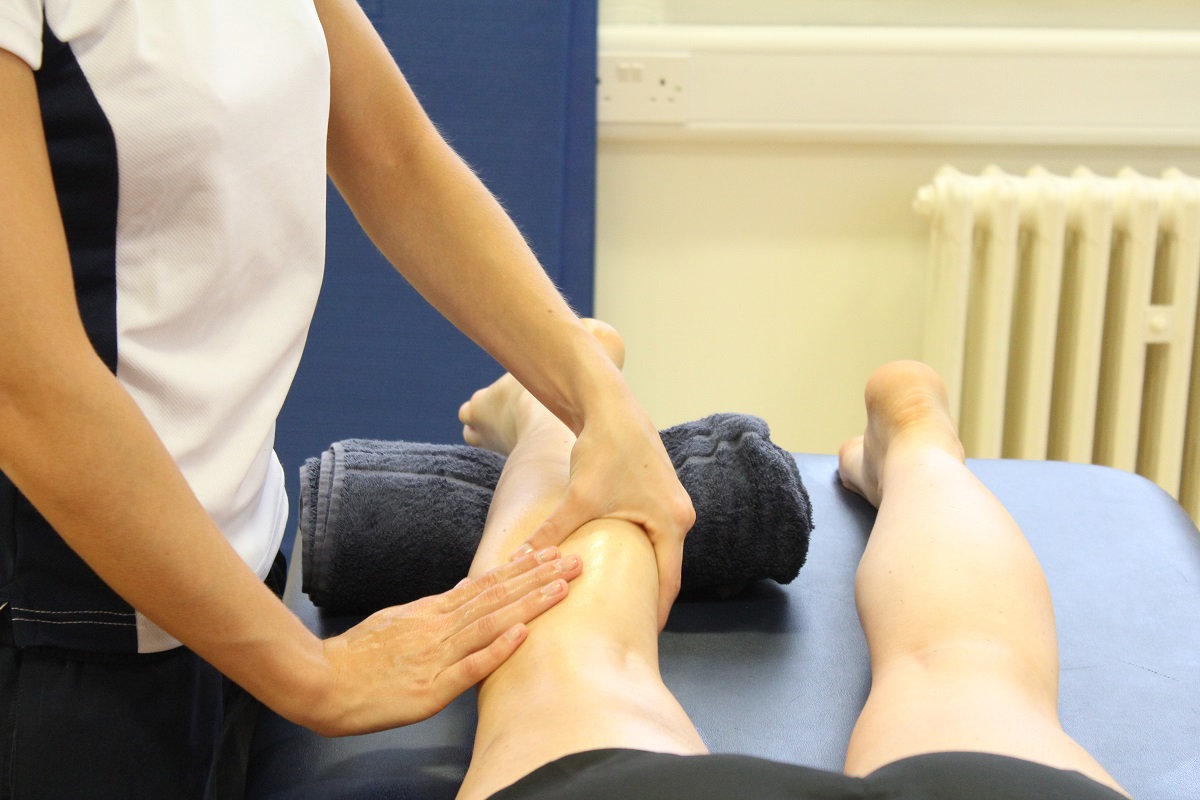




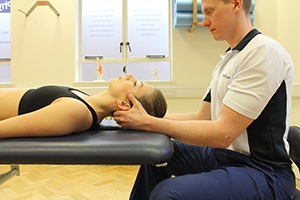
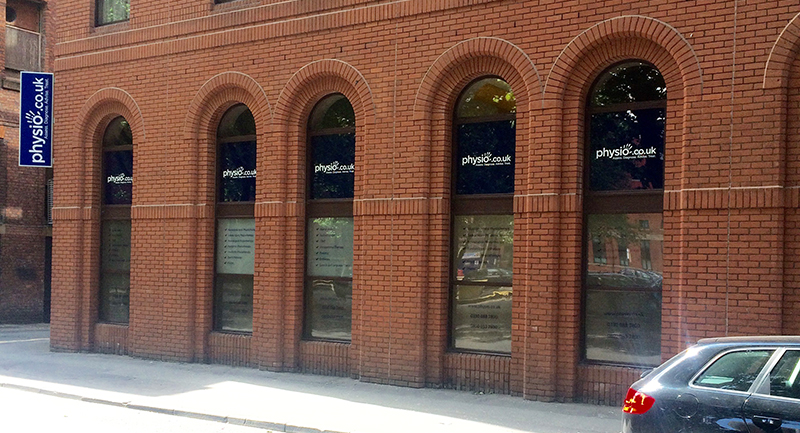































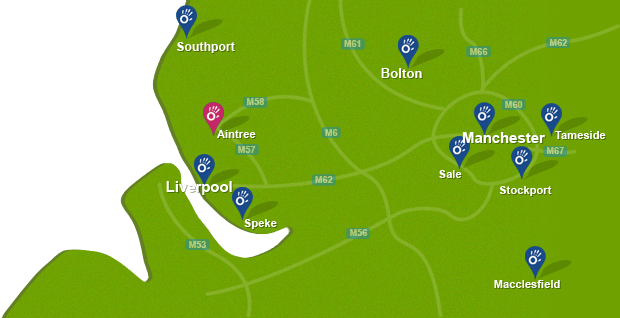

 f
f
